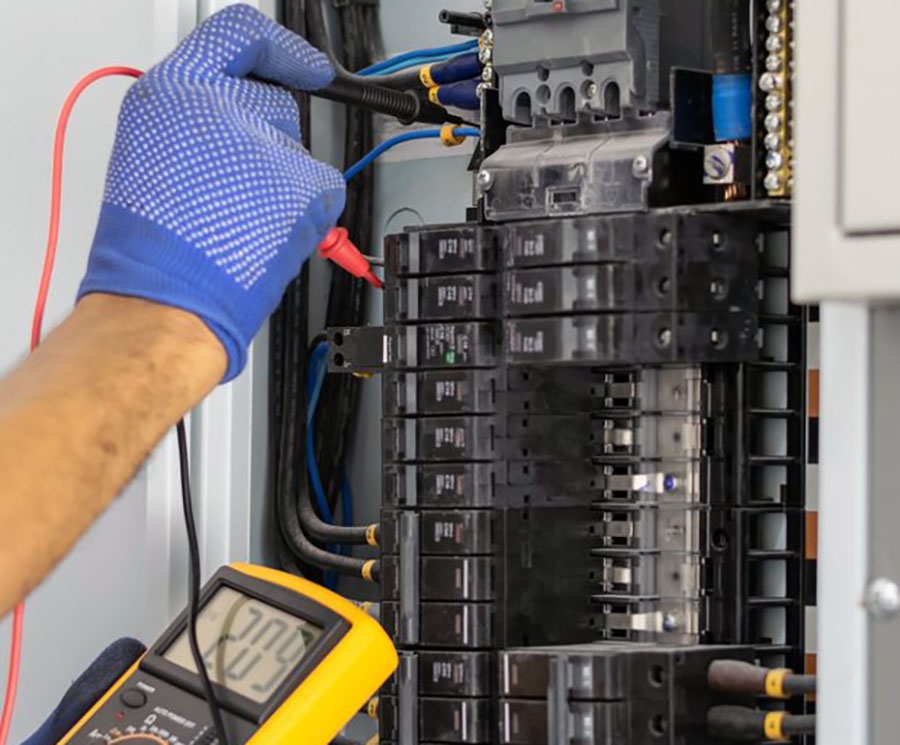Can a circuit breaker go bad? Yes, a circuit breaker can go bad or fail. The internal components of a circuit breaker can wear out or become damaged, leading to malfunctions or failure. Common causes of circuit breaker failure include overheating, mechanical wear and tear, corrosion, and electrical faults.
If a circuit breaker is not functioning properly, it may not trip when it should, or it may trip frequently, even when there is no overload or short circuit present. This can pose a safety hazard and may lead to damage to electrical equipment or appliances. If you suspect that a circuit breaker is not working properly, it is important to have it inspected and repaired by a qualified electrician to ensure the safety of your electrical system.
How does circuit breaker go bad?

Circuit breakers can go bad or fail for a variety of reasons. Some of the common causes of circuit breaker failure include:
Overheating
Overloading or excessive current flow through the circuit breaker can cause it to overheat, which can damage the internal components and lead to failure.
Wear and Tear
Circuit breakers have moving parts that can wear out over time, particularly with frequent usage. This wear and tear can cause the circuit breaker to malfunction or fail.
Corrosion
Exposure to moisture, salt, or other contaminants can cause corrosion on the contacts or other internal components of the circuit breaker, which can prevent it from functioning correctly.
Electrical Faults
Electrical faults such as short circuits or ground faults can cause sudden surges of current through the circuit breaker, which can damage the internal components and lead to failure.
Aging
Like all electrical equipment, circuit breakers have a limited lifespan and can wear out over time. Old circuit breakers may become more prone to failure and may need to be replaced to ensure the safety of the electrical system.
It's important to have your electrical system inspected regularly by a qualified electrician to identify any potential problems and replace any faulty or outdated circuit breakers to maintain the safety of your home or business.
What happens when a breaker goes bad?
What happens when a circuit breaker goes bad? If the breaker goes bad then the power will be disconnected and no current will flow through the circuit. It can cause a variety of problems in your electrical system, including:
Tripping Frequently
If a circuit breaker is failing, it may trip frequently, even when there is no overload or short circuit present. This can cause inconvenience and may indicate a safety hazard.
Not Tripping
On the other hand, a failing circuit breaker may not trip when it should, even when there is an overload or short circuit present. This can pose a safety hazard and may cause damage to electrical equipment or appliances.
Burning Smell
If a circuit breaker is overheating or has internal damage, it may emit a burning smell or show signs of burning or discoloration. This is a serious safety hazard and should be addressed immediately.
Sparks or Smoke
In severe cases, a failing circuit breaker may produce sparks or smoke, which can be a sign of a dangerous electrical fault. If you notice sparks or smoke coming from your circuit breaker, turn off the power to that circuit immediately and call a qualified electrician.
No Power
A circuit breaker that has failed may prevent power from flowing to a circuit, causing a complete loss of power to the affected area. If you suspect that a circuit breaker has gone bad or is not functioning properly, it is important to have it inspected and repaired by a qualified electrician to ensure the safety of your electrical system.
If the breaker goes bad then what should I do?

If you suspect that a circuit breaker has gone bad or is not functioning properly, you should take the following steps:
Turn Off the Power
If you notice any signs of a failing circuit breaker, such as sparks, smoke, or a burning smell, turn off the power to that circuit immediately. This will help to prevent any further damage or potential safety hazards.
Identify the Problem
If the circuit breaker is tripping frequently or not tripping at all, try to identify the problem that is causing the issue. This could be an overload or short circuit, or it could be a problem with the circuit breaker itself.
Call a Qualified Electrician
It's important to have a qualified electrician inspect and repair any faulty circuit breakers. Attempting to repair a circuit breaker yourself can be dangerous and may cause further damage or safety hazards. A qualified electrician can safely diagnose and repair the problem, ensuring the safety of your electrical system.
Replace the Circuit Breaker
In some cases, a circuit breaker may be too damaged to repair and will need to be replaced. A qualified electrician can help you select the appropriate replacement circuit breaker and install it safely and correctly.
It is noted that working with electricity can be dangerous and should be left to qualified professionals. If you suspect that a circuit breaker has gone bad or if you have any concerns about the safety of your electrical system, contact a qualified electrician immediately.
What do you mean by a bad circuit breaker?
A bad circuit breaker is not functioning properly or has failed. A circuit breaker is a safety device that is designed to protect your electrical system from damage caused by overloads, short circuits, or other electrical faults. If a circuit breaker is not working properly, it may not trip when it should, or it may trip frequently, even when there is no overload or short circuit present.
Final thought
A circuit breaker is not working properly can pose a safety hazard particularly if it is not tripping when it should. It's important to have your electrical system inspected regularly by a qualified electrician to identify any potential problems and replace any faulty ones. On the other hand, outdated circuit breakers maintain the safety and reliability of your electrical system.


No comments yet